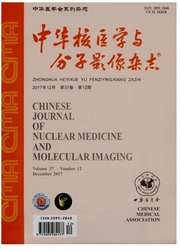

 中文摘要:
中文摘要:
性腺的辐射敏感度较高.131Ⅰ治疗DTC对患者生殖健康的影响备受关注.131^Ⅰ可导致睾丸功能的一过性损伤,表现为血清卵泡刺激素和黄体生成素升高、精子数量和活力降低,这些损伤作用与累积服用131Ⅰ的活度具有相关性.131^Ⅰ对卵巢功能的一过性损伤表现为月经推迟、经量减少和短暂性闭经,多数在1年内恢复正常;长期损伤仅表现为绝经时间的轻度提前.现有的临床研究并未表明1311I可引发男性DTC患者的永久性不育.131Ⅰ治疗1年后,女性DTC患者的受孕能力及妊娠效果并不会因既往接受过131Ⅰ治疗而受到影响.
 英文摘要:
英文摘要:
For patients with DTC,the side effect of 131^Ⅰ therapy on fertility and offspring is an important issue since genital tissues are highly sensitive to radiation.Exposure to 131 I radiation may result in transient impairment of gonadal function in male patients caused by elevated levels of serum follicle stimulating hormone and luteinizing hormone,low sperm count and motility.In female patients,exposure to 131^Ⅰ radiation may be complicated with delay of menstruation,oligomenorrhea and transient cessation of menstrual period.Most of these symptoms may resolve within one year after 131 I therapy.A slightly earlier menopause is the only reported long-term side effect of 131^Ⅰ therapy on ovarian function.Currently available data do not indicate that exposure to 131^Ⅰ may cause permanent infertility in male patients with DTC.For female patients with DTC,131 I therapy does not affect fertility or pregnancy outcomes beyond one year.
 同期刊论文项目
同期刊论文项目
 同项目期刊论文
同项目期刊论文
 Lung absorbed doses in radioiodine therapy of thyroid cancer patients with diffuse pumonary metastas
Lung absorbed doses in radioiodine therapy of thyroid cancer patients with diffuse pumonary metastas 期刊信息
期刊信息
